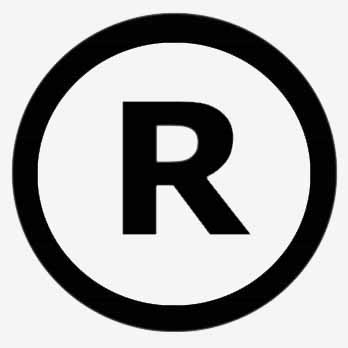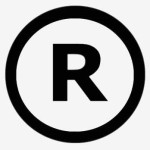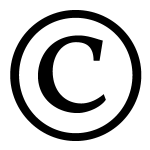What’s the First Step When Applying for a Trademark?

Before you begin your trademark application process, you should first search the USTPO’s database to see if any trademark has been registered that is: • Similar to your trademark • Used on related products or for related services, and • Currently active If there is a trademark that meets all over the three above criteria, […]
Read More Posted by reichertlegal
Posted by reichertlegal- Posted in Intellectual Property Baltimore Maryland Attorney, Intellectual Property Baltimore Maryland Lawyer, Intellectual Property Law Maryland, Trademark Application United States, Trademark Attorney United States, Trademark Company, Trademark Filing Registration, Trademark Filing United States, Trademark Law Attorney Maryland, Trademark Law Lawyer Baltimore Maryland, Trademark Lawyer United States
 Oct, 17, 2019
Oct, 17, 2019 Comments Off on What’s the First Step When Applying for a Trademark?
Comments Off on What’s the First Step When Applying for a Trademark?
What’s the General Timeline for a Trademark Application?

After an initial trademark application has been filed, the total process can take between three months to one year to complete. After USPTO reviews the application, the trademark can go one of two ways: USPTO will either 1.) approve, publish, and register the trademark, or 2.) issue a series of letters explaining the grounds for […]
Read More Posted by reichertlegal
Posted by reichertlegal- Posted in Intellectual Property Baltimore Maryland Attorney, Intellectual Property Baltimore Maryland Lawyer, Intellectual Property Law Maryland, Trademark Application United States, Trademark Attorney United States, Trademark Company, Trademark Filing Registration, Trademark Filing United States, Trademark Law Attorney Maryland, Trademark Law Lawyer Baltimore Maryland, Trademark Lawyer United States
 May, 23, 2019
May, 23, 2019 Comments Off on What’s the General Timeline for a Trademark Application?
Comments Off on What’s the General Timeline for a Trademark Application?
Do Laws of Copyright Apply to the Internet?

The short answer: yes. When in doubt, consider the matter to be under copyright and if you desire to use the work or portions of it, contact the copyright holder and request written permission. People often assume that internet material is free for the taking since getting to the material was free, i.e. you didn’t […]
Read More Posted by reichertlegal
Posted by reichertlegal- Posted in Attorney Maryland, Author Attorney Baltimore Maryland, Author Lawyer Baltimore Maryland, Copyright Attorney Baltimore Maryland, Copyright Attorney Maryland, Copyright Law Baltimore Maryland, Copyright Law Maryland, Copyright Lawyer Maryland, Intellectual Property Baltimore Maryland Attorney, Intellectual Property Baltimore Maryland Lawyer, Intellectual Property Law Maryland, Lawyer Baltimore Maryland, Trademark Attorney United States
 Feb, 06, 2017
Feb, 06, 2017 Comments Off on Do Laws of Copyright Apply to the Internet?
Comments Off on Do Laws of Copyright Apply to the Internet?
Maryland Copyright Lawyer: What Cannot Be Copyrighted?

The list of items that we cannot copyright is long but I’ll list a few here that folks often think they can copyright but they cannot. Facts cannot be copyrighted. If you are writing a explanation of how people play the game of baseball you don’t need to get permission from Major League Baseball or […]
Read More Posted by reichertlegal
Posted by reichertlegal- Posted in Author Attorney Baltimore Maryland, Author Lawyer Baltimore Maryland, Copyright Attorney Baltimore Maryland, Copyright Law Maryland, Copyright Lawyer Maryland, Intellectual Property Baltimore Maryland Attorney, Intellectual Property Baltimore Maryland Lawyer, Intellectual Property Law Maryland, Publisher Attorney Baltimore Maryland, Publisher Lawyer Baltimore Maryland
 Apr, 05, 2015
Apr, 05, 2015 Comments Off on Maryland Copyright Lawyer: What Cannot Be Copyrighted?
Comments Off on Maryland Copyright Lawyer: What Cannot Be Copyrighted?
Maryland Intellectual Property Attorney: “Fair Use” and Quoting Previously Published Poetry

Permission is usually required if you use more than two lines of a poem. If the whole poem is only a few lines long, you may need permission to quote any of it. A fee may be required and you should inquire with the publisher and/or the poet. For a free, confidential conversation to discuss […]
Read More Posted by reichertlegal
Posted by reichertlegal- Posted in Contract Law Baltimore, Contract Law Maryland, Copyright Attorney Maryland, Copyright Law Baltimore Maryland, Copyright Law Maryland, Copyright Lawyer Maryland, Intellectual Property Baltimore Maryland Attorney, Intellectual Property Baltimore Maryland Lawyer, Intellectual Property Law Maryland
 Feb, 05, 2015
Feb, 05, 2015 Comments Off on Maryland Intellectual Property Attorney: “Fair Use” and Quoting Previously Published Poetry
Comments Off on Maryland Intellectual Property Attorney: “Fair Use” and Quoting Previously Published Poetry
Baltimore Maryland Copyright Lawyer: Quoting a Published Book and “Fair Use” of Copyright Material

Publishers require that you obtain permission if you are quoting text in excess of a maximum word count, this is typically anywhere between 100 and 1000 words depending on the publisher. You should contact the publisher for guidelines before using the quote. For a free, confidential conversation to discuss these and other copyright law matters, […]
Read More Posted by reichertlegal
Posted by reichertlegal- Posted in Copyright Attorney Maryland, Copyright Law Baltimore Maryland, Copyright Law Maryland, Copyright Lawyer Maryland, Intellectual Property Baltimore Maryland Attorney, Intellectual Property Baltimore Maryland Lawyer, Intellectual Property Law Maryland
 Jan, 26, 2015
Jan, 26, 2015 Comments Off on Baltimore Maryland Copyright Lawyer: Quoting a Published Book and “Fair Use” of Copyright Material
Comments Off on Baltimore Maryland Copyright Lawyer: Quoting a Published Book and “Fair Use” of Copyright Material
Maryland Intellectual Property Law Attorney: Best Defenses to Defamation Lawsuit

Defamation is making a false statement about a living person such that the statement causes the person ridicule or scorn. Simply put, the best defense is having evidence to support the statement as reported. In other words, “show” that the fact reported is in-fact true. The second best defense, though not always successful, is to […]
Read More Posted by reichertlegal
Posted by reichertlegal- Posted in Copyright Attorney Maryland, Copyright Law Baltimore Maryland, Copyright Law Maryland, Copyright Lawyer Maryland, Intellectual Property Baltimore Maryland Attorney, Intellectual Property Baltimore Maryland Lawyer, Intellectual Property Law Maryland
 Jun, 23, 2014
Jun, 23, 2014 Comments Off on Maryland Intellectual Property Law Attorney: Best Defenses to Defamation Lawsuit
Comments Off on Maryland Intellectual Property Law Attorney: Best Defenses to Defamation Lawsuit
Maryland Copyright Law Attorney: When Does Formerly Copyrighted Material Become Part of The Public Domain?

When a previously copyrighted material becomes part of the public domain, that work can be used without permission form the previous copyright owner. The following is a guide to help determine if material has become part of the public domain. 1. BEFORE 1923: All material published in the United States before 1923 is in the […]
Read More Posted by reichertlegal
Posted by reichertlegal- Posted in Copyright Attorney Maryland, Copyright Law Baltimore Maryland, Copyright Law Maryland, Copyright Lawyer Maryland, Intellectual Property Baltimore Maryland Attorney, Intellectual Property Baltimore Maryland Lawyer, Intellectual Property Law Maryland
 Jun, 07, 2014
Jun, 07, 2014 Comments Off on Maryland Copyright Law Attorney: When Does Formerly Copyrighted Material Become Part of The Public Domain?
Comments Off on Maryland Copyright Law Attorney: When Does Formerly Copyrighted Material Become Part of The Public Domain?
Maryland Copyright Law Lawyer: Can A Copyright Owner Obtain an Injunction to Stop Publication?

Yes. Under federal law, the owner of a copyright that has been violated may seek an injunction to prevent further exploitation of the work. Along with an injunction, monetary damages and attorney fees can be awarded. For a confidential conversation to discuss these and other copyright law matters, contact Maryland copyright attorney Stephen J. Reichert […]
Read More Posted by reichertlegal
Posted by reichertlegal- Posted in Copyright Attorney Maryland, Copyright Law Baltimore Maryland, Copyright Law Maryland, Copyright Lawyer Maryland, Intellectual Property Baltimore Maryland Attorney, Intellectual Property Baltimore Maryland Lawyer, Intellectual Property Law Maryland
 May, 21, 2014
May, 21, 2014 Comments Off on Maryland Copyright Law Lawyer: Can A Copyright Owner Obtain an Injunction to Stop Publication?
Comments Off on Maryland Copyright Law Lawyer: Can A Copyright Owner Obtain an Injunction to Stop Publication?
Maryland Copyright Law Lawyer: Getting Permission to Use Copyrighted Material

There are basic steps you should follow when seeking permission of copyrighted work. First, determine who owns the copyright. Second, see if the material is protected or if you need permission to use the material. Third, determine exactly what rights you need to use the material. Forth, contact the copyright owner and seek permission. Fifth, […]
Read More Posted by reichertlegal
Posted by reichertlegal- Posted in Copyright Attorney Maryland, Copyright Law Baltimore Maryland, Copyright Law Maryland, Copyright Lawyer Maryland, Intellectual Property Baltimore Maryland Attorney, Intellectual Property Baltimore Maryland Lawyer, Intellectual Property Law Maryland
 May, 13, 2014
May, 13, 2014 Comments Off on Maryland Copyright Law Lawyer: Getting Permission to Use Copyrighted Material
Comments Off on Maryland Copyright Law Lawyer: Getting Permission to Use Copyrighted Material

 Free Confidential Consultation. Call Now! 410-299-4959
Free Confidential Consultation. Call Now! 410-299-4959 Join Us On Facebook
Join Us On Facebook Join Us On Twitter
Join Us On Twitter Join Us On In.com
Join Us On In.com Subscribe to RSS
Subscribe to RSS Follow Us On Google+
Follow Us On Google+ Subscribe Us On Youtube
Subscribe Us On Youtube Follow Us On Pinterest
Follow Us On Pinterest Follow Us On Instagram
Follow Us On Instagram Follow Us On Tumblr
Follow Us On Tumblr Subscribe Us On Flickr
Subscribe Us On Flickr